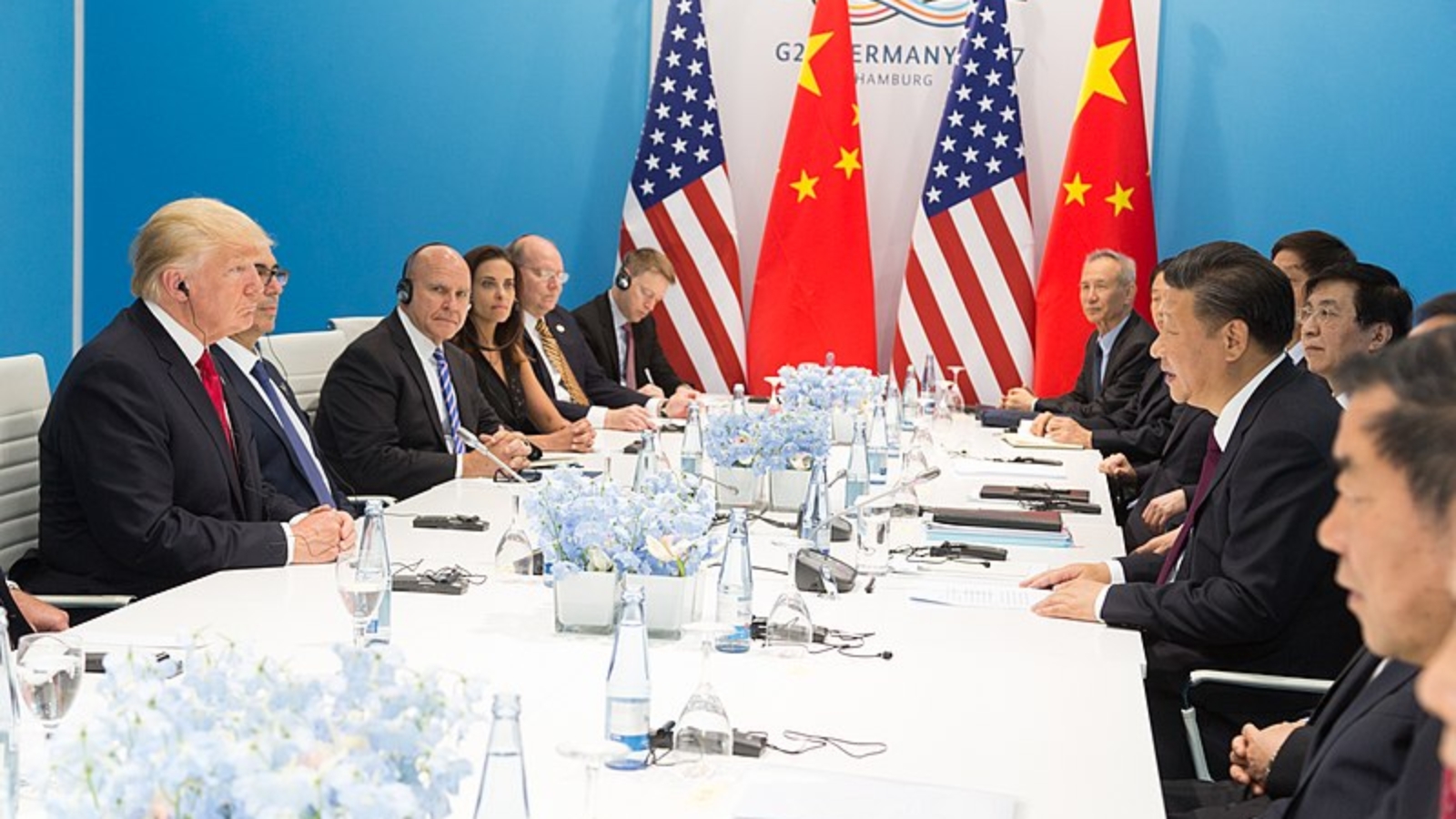By James H. Nolt
The U.S. and China are headed for a trade conflict that may rattle the entire world economy. Both Presidents Xi Jinping and Donald Trump are confident they hold the moral, political, and economic high ground, but they are each playing a different game. Trump seems to be more vulnerable. If he recognizes that, he might back down from a fight he cannot win. If not, the U.S. may become increasingly isolated within the liberal world order it largely shaped.
Starting with the moral asymmetry, Xi has managed to pose as a champion of multilateralism and liberal trade at the same time that Trump is tearing up the liberal playbook followed by every U.S. president since Franklin Roosevelt. At speeches at the World Economic Forum in Davos, Switzerland, in January and again on April 10 at the Boao Forum for Asia, hosted by China, Xi has claimed he favors further liberal trade and investment reforms and supports multilateral negotiations through established institutions, such as the World Trade Organization (WTO). In fact, China has been gradually easing its economic controls for four decades now, but many critics, including Trump and his trade adviser, Peter Navarro, believe China’s progress is much too slow. Trump and Navarro have also lost patience with U.S. allies and multilateral institutions, including the WTO, in favor of a more aggressive unilateral campaign threatening China with broad tariffs if it does not comply with U.S. demands more quickly.
Politically, both presidents may feel they have the upper hand. During the 2016 presidential campaign, Trump railed against China’s trade practices. His recently announced tariff actions initially seemed to earn him a small uptick in his approval rating. Yet Trump may have erred in waiting until 2018 to take tough trade action. Xi is less vulnerable now than he was last year, since he was elected to a second term at China’s 19th Communist Party Conference in October. His position is secure for another five years until the next party conference, allowing him to make minor concessions while defending core concerns, whereas Trump faces potential losses in the midterm elections this November. The opposition Democratic Party seems likely to make significant gains, perhaps enough to win control of both houses of Congress. Furthermore, a trade war with China would be divisive within Trump’s Republican Party: Many Republican leaders support free trade, and China’s proposed tariff retaliation against Trump’s threatened tariffs would hit hardest Republican voters in farm states and manufacturing districts in crucial swing states. If the negative consequences of a tariff war are fully visible as the election approaches, then Trump may be forced to back down, cut his losses, and make an unsatisfactory deal.
Economically, Trump and Navarro claim the U.S. can win a trade war because China exports to the U.S. far more than it imports. This trade imbalance is exactly what Trump touts as evidence of China’s unfairness and vulnerability. Xi’s public position is less bold: He says nobody wins a trade war. Meanwhile, elements of the Chinese media are saying China can win such a war, making the president’s words sound weaker in comparison. Xi’s “no winners” stance does, however, comport with liberal pro-trade sentiment worldwide, making him sound more reasonable and Trump more reckless. Xi may be buying himself time and sympathy. If Trump does not appear to win quickly, before the pain of a trade war mounts, then he looks ineffectual and China looks strong. If Trump perseveres in the face of dire consequences, then he will look reckless for initiating a costly losing fight. The real balance of economic power on this issue does matter.
There are several reasons why U.S. interests may suffer more in a trade war than Trump seems to believe. China is poised to punish U.S. farmers in particular with hefty tariffs. Soybean and pork farmers are especially vulnerable. Although new Chinese tariffs on these products are only proposed, not yet enacted, farmers worldwide are making decisions now on what to plant. Prices of threatened products are already falling in anticipation of the future tariffs. If U.S. farmers are cautious and plant less, they will lose market share in China to South American farmers who are not targeted by Chinese retaliation. On the other hand, if they are overconfident, plant their crop as usual, and then cannot sell much of it when tariffs do go into effect, their situation may be even more desperate, particularly since most farmers must borrow each year to plant. They must earn expected revenue on their crop or risk loan defaults and bankruptcy.
Many U.S. manufacturers exporting to China supply necessary parts for U.S.-owned factories. U.S. companies profit from production in China far in excess of what the U.S. exports to China every year. New tariffs on imported components would erode their competitiveness in China. So even though the U.S. exports less to China than China exports to the U.S., the total value of U.S. business with China is much greater than what is apparent from the trade figures alone. Large U.S. firms with extensive interests in China will join the protests of farmers and other Americans adversely affected by a tariff war.
Finally, both Xi and Trump are playing for crucial European support, but Trump may have a harder time gaining it because he threatens Europe with the same sort of rhetoric against trade imbalances that he aims at China. If Xi makes concessions to Europe over market access and intellectual property protections while countering Trump’s tariff threats tit-for-tat, the Europeans and others may gain business in China at the expense of the U.S. In that case, Trump’s unilateral trade threats may isolate the U.S. rather than empower it.
* * *
* * *
James H. Nolt is a senior fellow at World Policy Institute and an adjunct associate professor at New York University.
[Photo courtesy of The White House]